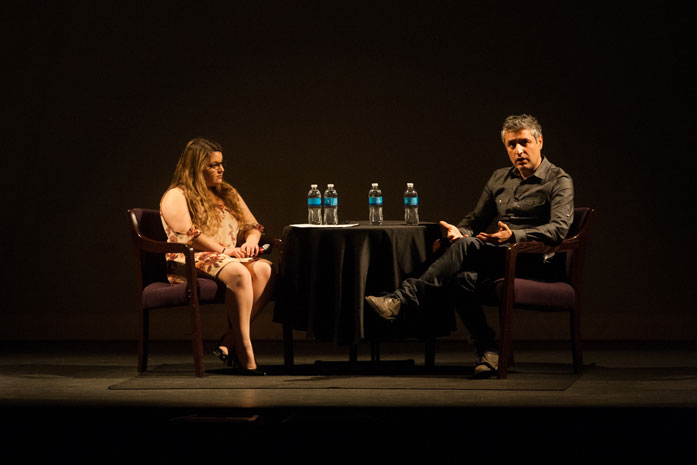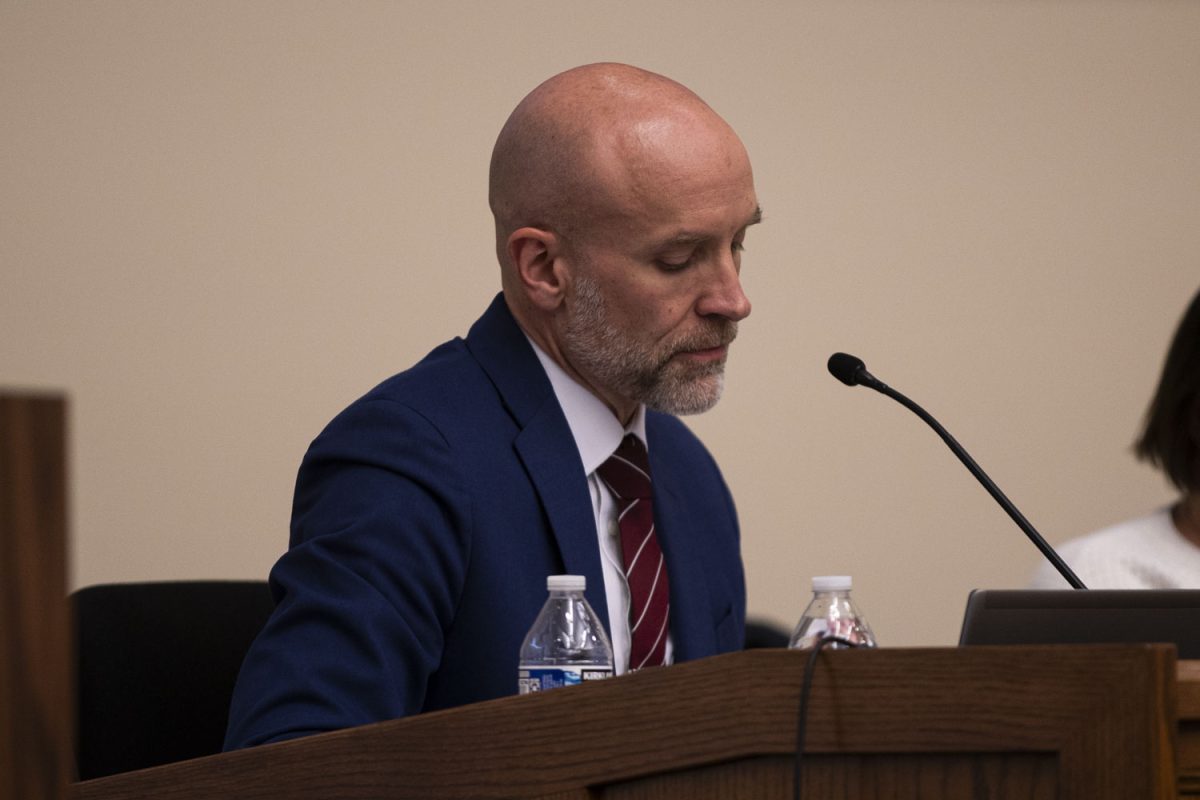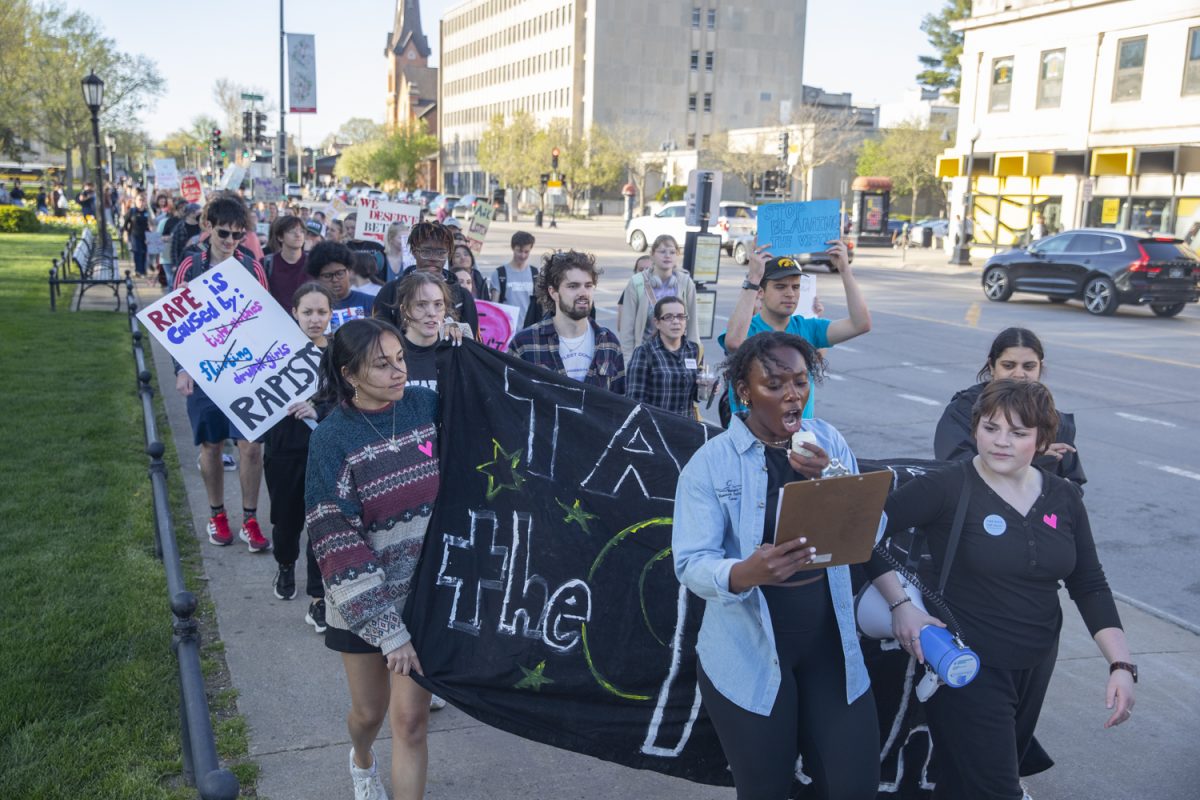By Natalie Betz |
Reza Aslan, a New York Times bestselling author and Iowa Writers’ Workshop alum, débuted the first episode of his new CNN show, “Believer,” at the Englert Theater on Wednesday. It will air on March 5 at 10 p.m.
In the first episode, Aslan travels to India to learn and practice with the Hindu sect Aghori. Aslan will experience a different religion in each episode to promote unity.
“The whole reason I did this show is beyond the walls that separate us, there is something that’s profoundly human that connects us all,” he said. “My goal was to take you on a kind of journey with me, from ‘That’s the craziest thing I’ve ever seen in my life” to ‘OK, I get that.’ ”
There are sections of Americans who live in a fear of several groups of people for a number of reasons, Aslan said.
The episode shows “Dalits” — or “untouchables” — the lowest caste in the Hindu system. They work 18 hours a day for most of their life. The episode showed them collecting garbage, and in some areas, they cremate the dead.
In the episode, Aslan said it’s hard for him to process the “bleak and unjust” practices of the untouchables.
He dunked himself into the polluted Ganges River and ate ashes of the dead despite his fear of getting sick to respect the rituals of the old-fashioned “Aghori theatrics.”
Modern Aghoris are working to change their rituals and their message, Aslan said. They have started an orphanage.
The episode showed that many people from the modern Aghori sect want to ignore the caste system and give the children in the orphanage the possibility to be educated despite the caste they are born into.
They even have doctors to help cure diseases such as leprosy.
Aslan said the Aghoris do not have discrimination and believe in unifying people.
In his lecture after the show ended, he said he is “baffled” by people who label themselves as Evangelical Christians, yet are against helping refugees who escape genocide.
“We have to debate what it means to be American,” Aslan said. “There is no homogeneity in this country. The easiest way to identify yourself is in opposition to another.
“You need to be a representation of the country you want to live in. The core of what it means to be an American is when minority groups stand up for other minority groups.”
He said that since the inauguration, there have been 60 bomb threats to Jewish schools, and Muslims have collected approximately $74,000 to fix the Jewish cemeteries.
For ordinary citizens interested in making a difference, he said, calling senators and rallying make a big impact. Don’t just think that information alone has the power to change how people think, he said, it’s important to inform yourself.
Many people read the Quran wrong, Aslan said.
“Scripture without interpretation is just words on a page,” he said. “It depends on the translator to decide how a word with three meanings is written as.”
For the last year, students have requested that Aslan come speak, said Sarah Tortora, the head of the UI Lecture Committee.
“He’s speaking about a very timely and important subject, not just in Iowa, but nationally and globally,” she said.
The lecture packed the Englert. The audience was engaged with Aslan’s speech, laughing and cheering during with his lecture.
“I’ve seen clips of Reza and listened to his audiobook, so I was excited to see he was coming to Iowa City,” audience member Thuy Nguyen said. “He’s a big name in the religious community.”







